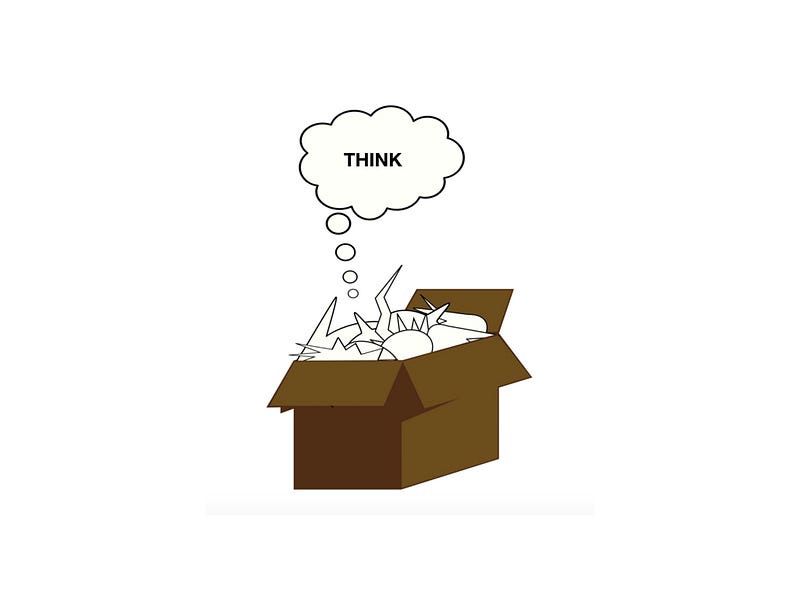
“The great thing about getting older is that you don’t lose all the other ages you’ve been.” — Madeleine L’Engle
One of the great ironies of playing sport is that when you are older your experience is a great advantage, but your body no longer operates at its peak. Thanks to experience, game situations seem to slow down for you mentally and you can almost see what is happening before it happens. This is why older players are often better at making others look good than at making themselves look good. The problem they run into is that the great value of their experience is often overlooked.
With high-level sports that makes sense, because the body needs to be in optimum state. However, in a knowledge based business economy where experience and varied knowledge is a huge advantage why do we impose retirement on people who are just hitting their peak?
In society, we undervalue experience.
In a world where people are starting to live longer, should we reframe age?
In a world where people retire at 65, should we re-examine retirement?
In a world where we are conditioned to see age negatively, we should change that.
Improving with Age

A commonly held belief is that wine improves with age. Unlike many perishable goods, wine has the potential to improve with age, but just because it can, does not mean it will. Complex chemical reactions involving a wine’s sugars, acids and tannins can alter the aroma, colour, mouthfeel and taste of the wine in a way that may be more pleasing to the taster.
The improvement of wine with age is dependent on certain factors.
- The Vessel: The quality of aged wine varies significantly from bottle-to-bottle, depending on the conditions under which it was stored. The condition of the bottle (and cork) is essential for better ageing.
- The Capability: The wine must have the intrinsic chemistry capable of improving.
- The Environment: Storage conditions must be correct including levels of temperate, humidity and darkness.
- Investment of both time and capital to monitor the ageing progress.
Improving with Experience — “Expert Intuition”
The basal ganglia is the part of our brains associated with a variety of functions including control of voluntary motor movements, procedural learning and routine behaviours or habits.
The basal ganglia gathers our experiences in a bank for quick access. The more experiences we have, the quicker we can make informed decisions and the more accurate those decisions are. On this week’s show Neuroleadership expert and author ‘Leading Brain’, Friederike Fabritius tells us this skill is called “Expert Intuition”.
Biases
First impressions are formed within milliseconds of seeing someone. A first impression is a lasting non-verbal communicator and is very hard to change, once formed.
Dr. Albert Mehrabian, through his studies on nonverbal communication, developed the “7%-38%-55% Rule”. Mehrabian concluded that we judge people much more on their nonverbal communication than the content of what they say. Words account for 7%, tone of voice 38%, and body language 55%.
Lookism is the discriminatory treatment of physically unattractive people in the workplace (and in social settings).
The “What is beautiful is good” stereotype explains how physically attractive people are perceived more positively and how physical attractiveness has a strong influence on the judgment of a person’s competence. Psychology professor Dr Ellen Berscheid studied the effects of physical attractiveness for over 20 years. She found powerful effects from physical attractiveness in just about every conceivable type of social interaction.
Ageism is the discrimination against individuals based on their age. Ageism is a combination of three connected elements: prejudicial attitudes towards older people, old age, and the ageing process; discriminatory practices against older people; and institutional practices and policies that perpetuate stereotypes about elderly people.
Conditioned to be Ageist
From a young age, we are conditioned to think negatively about age. All the data we receive both consciously and subconsciously paint old age in a negative light.
Self Talk
A Japanese scientist Masaru Emoto spent fifteen years researching the effects of human speech, thoughts, and emotions on physical matter. Dr Emoto’s team measured how over 10,000 samples of water responded to words, music, prayers, and blessings. He and his research assistants spoke to, played music for, and even had monks pray over the water.
The water samples were then frozen, and the resulting ice crystals were examined under a microscope. The results were astounding.
When scientists treated the water “kindly,” by saying such things as “I love you” and “thank you,” the resulting water crystals became clear and beautifully formed. However, when Emoto and his team talked negatively to the water, saying “I hate you!” or “You idiot!” the crystals formed dark, ugly holes!
One sample starts out as a dark, shapeless blob, but is completely transformed after a priest prays over it for just one hour. The ugly crystal turned into a clear, bright-white hexagonal crystal-within-a-crystal.
Whether we believe it or not, what we tell ourselves regularly has a huge effect on our mentality and thus our reality.
Have you noticed how people start to groan when they pick something up when they are older? Have you noticed how we overemphasise when we get a grey hair? Have you noticed how we say that the spare tyre around our gut just won’t go because our metabolism has slowed down?
We start to make excuses rather than to continue to challenge ourselves. We start to listen to the stereotypes and behave accordingly.
This is just like we see in business.
Challenging Age
Deepak Chopra tells us we age because the cells in our bodies age, but cells live only in the present. Brain cells function through electrochemical activity that occurs the instant a chemical reaction or electrical impulse is able to occur. There are no pauses to think about reacting; if the potential is there, the action must follow.
So the problem of ageing can be stated as the gap between how a cell lives and how a person lives. As people, we repeat the past, get stuck in old habits, cling to stubborn beliefs, fear the future, and occupy mental states that are not in the now.
Sound familiar business world?
Corporate bodies get stuck in old habits, cling to stubborn beliefs, fear the future, and occupy mental states that are not in the now
Augmented Humanity — The Answer to Ageism?

Like we see in business all the time, we bring in new technology and that will certainly fix the problem. We can digitise the (outdated) business model. Digital transformation is what is needed! Technology is the answer. Companies need to do more than invest in technology, they must transform the entire operation and culture of the organisation.
If the problem with ageism is that people don’t respect the experience of senior people. So why don’t we just upgrade the shell (body)? Could technology be the answer?
Anti-ageing creams, cosmetic surgery and even anti-aging medications are multi-billion dollar industries.
We could go a step further and turn to people like Elon Musk and his “Neuralink” project, a venture to merge the human brain with AI. Google’s Ray Kurzweil is still targeting 2029 for when the “Singularity” will happen and man and machine will merge.
You will have seen the robot named Sophia (below). Robots, like Sophia, will get more and more realistic (and have less of a creepy smile). So we can just upload a human mind into a new shell?
Science fiction movie “Ghost In The Shell” is about a human, who has her brain transplanted into a robotic body capable of feats no human is.
So, we can upload the great experience of a “senior” brain into a new shell.
Would we change our view then?
Would this mean the end of ageism?
Would it mean the end of workplace bias?
Would it mean that senior workers won’t suffer bias when trying to get relevant roles?
Companies like Meetingroom.io have developed VR interview capabilities, so people can be interviewed as generic avatars and the voice too can be generified. This all means that gender, age and race bias are removed from the interview. A candidate is interviewed based on their knowledge and experience.
It reminds me of the movie “The Intern” with Robert DeNiro playing a senior intern. He is a seventy-year-old widower and retired executive who applies to a senior citizen intern programme after retirement has become too boring for him. He revolutionises the business because of the depth of his work and life experience.
100 is the new 80
We are living longer because of exponential improvements in health care. We live in an age when scientists can prevent disease and regenerate our bodies. Genetic engineering can prevent (or reverse) the ageing of our cells. Science can ensure our older years are lived free from the pain of degenerative diseases. Scientists are researching how to create new human organs using 3D printers and loaded with living cells.
We are facing a world where overpopulation is a burgeoning crisis. We are facing a future where artificial intelligence is replacing humans in rote roles, such as driving. Many retirees drive taxis to earn a pension top up. We are facing a future where retirees will not be simply spending money on insurance in case they get sick, they will be spending money on insurance in case they live!
Where does this all leave us, if people are living longer, but retired?
Where does it leave us, if valuable experience is not recognised in the workplace?
Where does it leave us when we are ageist?
Pointing the Finger

Many people will read this and point the finger at society as the culprit for ageism. However, we must remember when we point the finger, there are three pointing back at ourselves.
Solutions?
Let’s return for a moment to the guidelines for ageing a good wine, let us look at the four tenets of this and apply those rules to ageing a human.
The Vessel: The quality of aged humans varies significantly from person to person depending on how the person treated their body. Many older people (over 40 or earlier) simply stop exercising. This goes for both the body and the brain. They are intrinsically interlinked. Exercise feeds the brain and the brain produces chemicals which then make the body feel better.
This week’s guest on the innovation show is neuropsychologist Friederike Fabritius. She tells us an 80-year-old who exercises will have a better cognitive function than a 20-year-old who does not. (Remember the 80-year-old has a wealth of experience stored in the basal ganglia).
In addition, we stop stretching our brains and we start living routinely. Just like with any muscle, we need to keep using it or it will decline. The brain is no different.
The Capability: The person must have the intrinsic chemistry capable of improving. They must not have an incurable disease or one which prevents them from improving. They must have a desire to keep learning and keep challenging their brain and body. To improve we need to keep raising the bar (not the floor).
The Environment: The environment for me is our society. Like the water that is spoken to and goes rancid or pure, we must ensure we create a favourable environment for our minds. This means removing negative data sources, toxic people, negative news, age-affirming commentary.
The Investment: of both time and capital to exercise. We should eat good quality food (fuel) and we should be always learning and challenging the mind. (Caveat, if we are fortunate enough to afford this).
The Broken Box — A Final Thought

“If everyone has to think outside the box, maybe it is the box that needs fixing.” Malcolm Gladwell.
Technology is advancing at breakneck speed. Robotics, artificial intelligence and machine learning are advancing at a rate that outstrips the speed at which humanity is advancing.
As MIT Media Lab’s Joi Ito says, when everything is moving fast except us, the result is social, economic and cultural “whiplash”. (More on this mismatch when we speak to the brilliant Andrew Keen in the coming weeks)
We are currently experiencing this whiplash.
Some people will point at technology as the panacea for many societal ills. However, like we see with business all the time, we can change a business model, but changing a business model won’t change a company until we change the mental model.
It is our society which needs to change how we view age. This goes for those who should be revelling in the experience of old age and those of us who surround them.
“If you change the way you look at things, the things you look at change.” (The late, great) — Wayne Dyer
Let us strive for a world where an abundance of knowledge, experience and wisdom will be considered an asset, not a liability.
IF YOU LIKE THIS POST, PLEASE HIT LIKE SO OTHERS SEE IT
This week’s innovation show is EP 86: The Leading Brain: Powerful Science-Based Strategies for Achieving Peak Performance
We are joined by Friederike Fabritius, M.S., a trained neuropsychologist, certified coach, international keynote speaker, pioneer in applying insights from neuroscience in a business settings, expert in the field of Neuroleadership and author of The Leading Brain.
She shares strategies to improve our lives by understanding how to maximise our brains. She shares her thoughts on sleep, exercise, meditation, neurodiversity, artificial intelligence, parenting in a world of technology and much more.
Website: http://bit.ly/2FwsOJw
Soundcloud: http://bit.ly/2BsEmio
Spotify: http://spoti.fi/2rXnAF4
iTunes: https://apple.co/2gFvFbO
Tunein: http://bit.ly/2rRwDad
iHeart Radio: http://bit.ly/2E4fhfl
Subscribe by email: http://bit.ly/2EojOH7
You can find out more about Friederike and her work and where to by the book here: